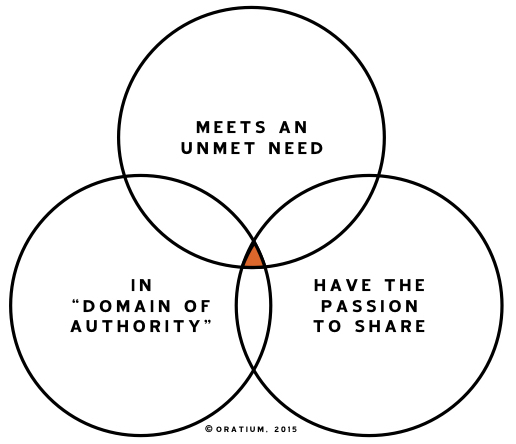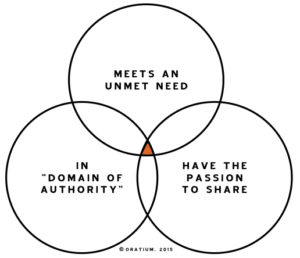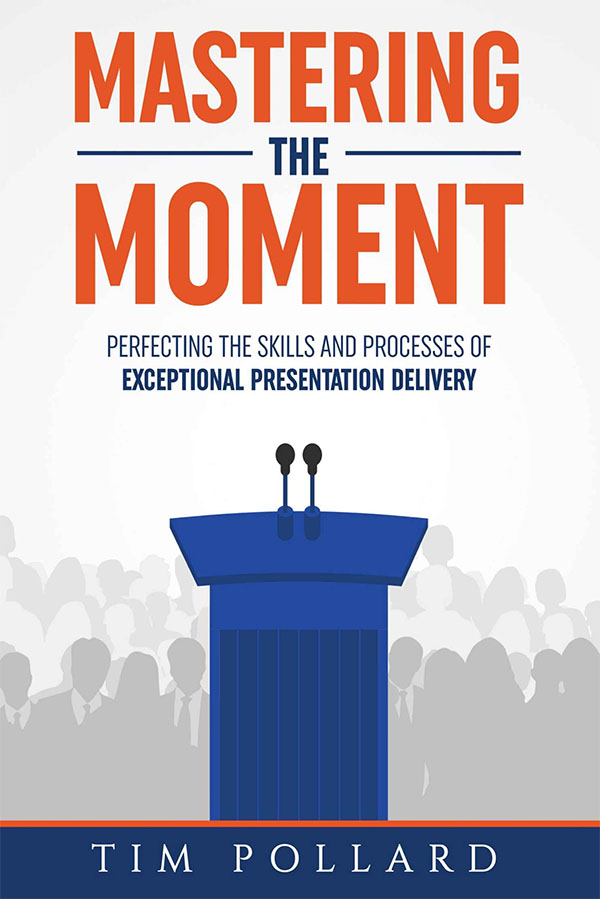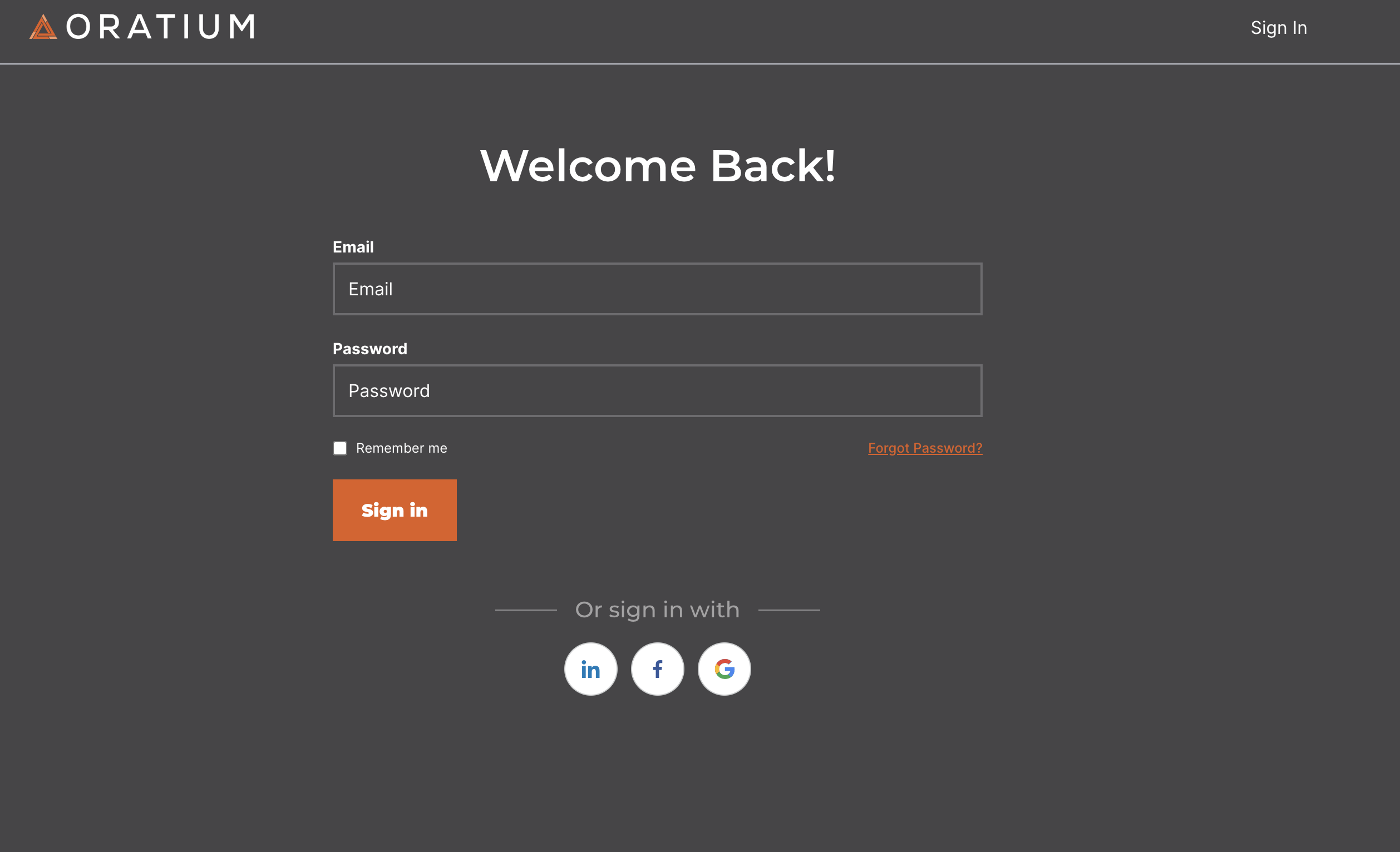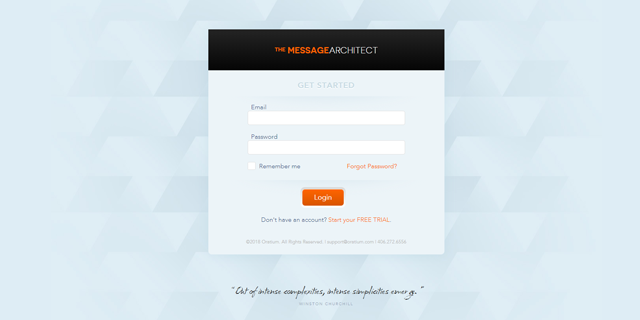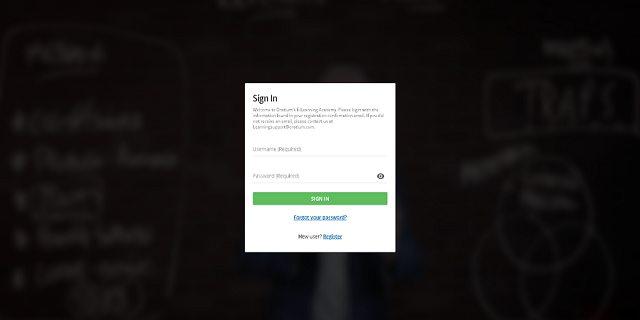THE PROBLEM
A lot of presentation and speaking advice starts here:
STEP ONE: Have a big idea.
No arguments with that advice, of course. You need a big idea before you can figure out anything else about your talk.
The problem is: how do you find yours?
THE SOLUTION
Here’s a framework I use with potential TEDxCambridge speakers and our executive coaching clients. (And yes, it draws its inspiration from Jim Collins’ “Hedgehog Concept” in Good to Great):
The best presentations find the magic overlap of all three: A speaker who is passionate and unquestionably qualified to share an idea that helps the audience.
MEET AN UNMET NEED
For people to listen and pay attention, they must have a reason. That means your idea needs to either solve a problem or realize an opportunity for the audience.
People don’t always know they have that need or opportunity. That’s okay. In those cases, you’ll spend a good chunk of the talk explaining why they do or would.
But in every case, your idea needs that reason to exist.
“DOMAIN OF AUTHORITY”
A lot of people have great ideas, but not everyone has the credibility to talk about them. An audience needs to understand why you do.
What are you uniquely qualified to talk about? Would the audience agree?
There are “throughlines” in every person’s life and career. Themes that connect the sum total of your education or experience, professional or otherwise. THAT’s your domain of authority, and your idea needs to be clearly connected to it.
(Let me be clear: this does not mean you open with an extended list of your credentials. Don’t tell people you’re qualified. Show them.)
PASSION TO SHARE
I’ve seen plenty of speakers fail, even with great ideas squarely in their domain of authority. Why? Because they weren’t passionate about sharing their idea.
Sometimes that was because the speaker just wasn’t passionate about the idea itself. But if you’re not excited about the idea, why would your audience be?
Other times they were passionate about the idea, but were clearly ambivalent about whether or not anyone else shared their passion. The problem is this: The audience can tell in a second if you’re there for them, or for you. Guess which speakers they prefer?
Passion shows. So find yours, and show it.
USING THE FRAMEWORK
I use the framework in two ways: to help test ideas (mine included!) and to help find them.
To test an idea, it must meet all three criteria. If it doesn’t, refine the idea until it does, or look for another one.
To find an idea, you can do one of two things:
- Look for an unmet need that you can solve (and then verify it with your domain of authority and passion to share).
- Look within your domain of authority for something you know or do that meets a need others have (and you’re excited to talk about)
Is there more to it than this? Of course. But this rough cut is often all you need to get started.
So what’s your big idea?

